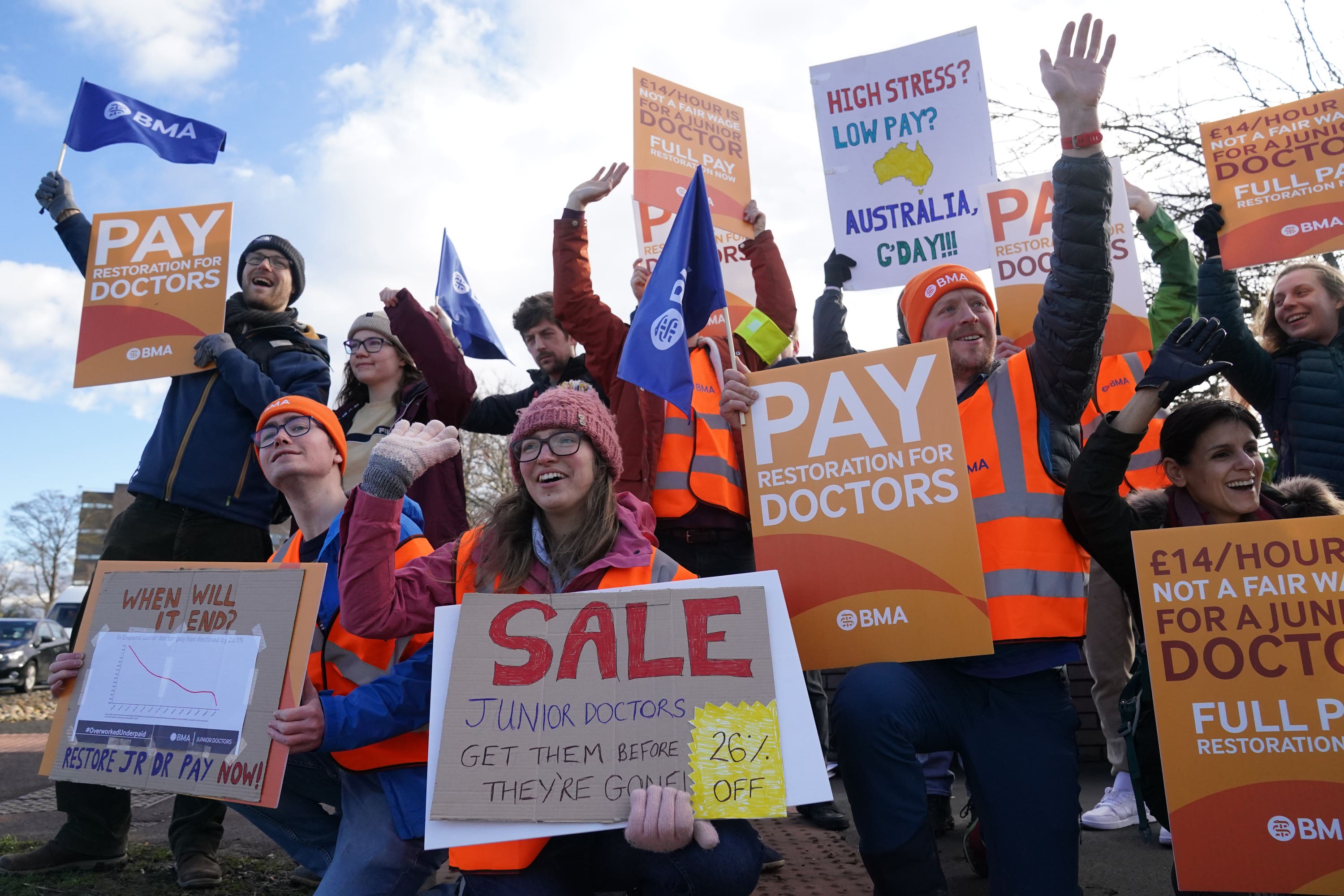More than 175,000 appointments cancelled over three day junior doctors’ walk out
Junior doctors’ strike ‘most distruptive’ yet, NHS leaders say

Your support helps us to tell the story
From reproductive rights to climate change to Big Tech, The Independent is on the ground when the story is developing. Whether it's investigating the financials of Elon Musk's pro-Trump PAC or producing our latest documentary, 'The A Word', which shines a light on the American women fighting for reproductive rights, we know how important it is to parse out the facts from the messaging.
At such a critical moment in US history, we need reporters on the ground. Your donation allows us to keep sending journalists to speak to both sides of the story.
The Independent is trusted by Americans across the entire political spectrum. And unlike many other quality news outlets, we choose not to lock Americans out of our reporting and analysis with paywalls. We believe quality journalism should be available to everyone, paid for by those who can afford it.
Your support makes all the difference.More than 175,000 patient appointments and surgeries were postponed this week during the three-day junior doctor walk-out, it has emerged.
NHS leaders have warned the strikes were the most disruptive yet with more appointments cancelled across three days than across any of the previous nurse strikes.
Data published by the NHS showed in total 181,049 patients had their care postponed, this included more than 5,000 mental health and hundreds of community health appointments. The figures could be even higher as not all trusts submitted data.
On Thursday, The Independent revealed estimates showing the NHS was set to be hit with a £92 million bill to have consultants cover junior doctor shifts based on predictions that 25,000 doctors a day would be absent.
However, the latest data shows absences were even higher with between 27,000 and 29,000 junior doctors absent from work due to the strikes each day.
The news comes after nursing and ambulance unions accepted a pay offer from the government, for a 5.3 per cent increase in 2023-24, which their members will now vote on.
On Friday the British Medical Association had offered health secretary Steve Barclay a meeting after the government had reached a pay deal with nursing and ambulance worker unions.
In a statement on Friday it said: “We are due to meet with the Health Secretary, Steve Barclay, next week. Junior doctors are keen to see their pay restored and to avoid further disruption to patient care, so if the health secretary is as committed to finding a settlement as he claims to be, it is within his gift to offer a deal so junior doctors can earn what they are worth, avoid further strike action and give patients the care they deserve.”
The union is calling for the government to address a 26 per cent real terms pay cut, based on RPI, which would require a 35 per cent pay rise.
Last week The Independent revealed NHS trusts were set to cancel the highest priority operations – those for patients needing life saving surgery and cancer care.
On the first day of strikes NHS England warned some hospital A&Es had seen the busiet Monday of the year with patients attending emergency department reportedly unaware of the strike action.
The data on canceled appointments comes after The Independent revealed the NHS was set to miss a major target to reduce the national care backlog.
Chief executive of NHS Providers, Sir Julian Hartley, said in response to the figures: “As trust leaders feared, this week’s 72-hour walkout by junior doctors has been hugely disruptive for patient care, with more than 175,000 planned hospital appointments and procedures postponed over three days. This more than doubles the total caused by previous recent strikes…
“This underlines why it’s so important for the government and unions representing junior doctors to find a way through in this dispute.
“Both the government and the BMA have shown a welcome willingness to start talks. These now need to happen without further delay.”
“A failure to find a deal could lead to further strikes, causing more disruption and distress for patients, and further setting back hard-won progress in tackling care backlogs.”
He added that the pay offer agreed with unions on Thursday show “where there is a will from all parties there is a way.”



Join our commenting forum
Join thought-provoking conversations, follow other Independent readers and see their replies
Comments